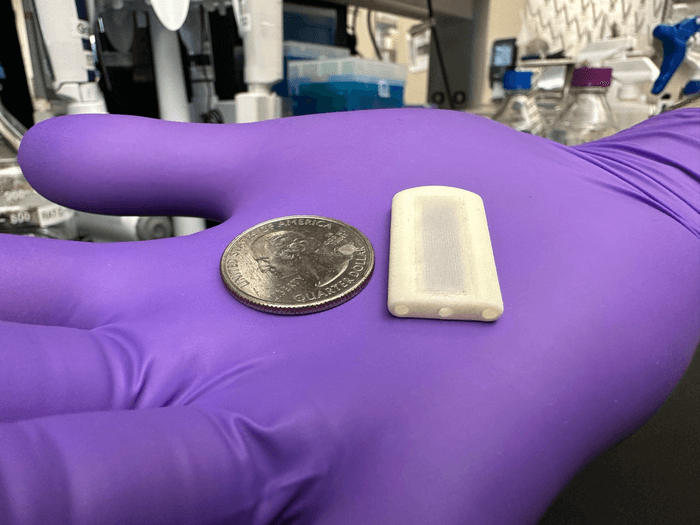A coin-sized implantable device created by scientists at Houston Methodist Research Institute Department of Nanomedicine could drastically alter the course of treatment for type 1 diabetes (T1D). The team, headed by Alessandro Grattoni, PhD, chair of the department of nanomedicine, delivered islet cells and immunotherapy directly into the 3D printed neovascularized implantable cell homing and encapsulation (NICHE) device, which they described as akin to a bioengineered pancreas. When tested in animal models, the NICHE implants restored healthy glucose levels and eliminated T1D symptoms for more than 150 days, while avoiding severe adverse effects of anti-rejection therapy by administering immunosuppressive drugs only where the transplanted islet cells were located.
Reporting on their development in Nature Communications (“Implantable niche with local immunosuppression for islet allotransplantation achieves type 1 diabetes reversal in rats,” corresponding author Grattoni and colleagues stated, “Overall, the NICHE is a promising solution with the potential to transform the field of islet transplantation for safe and prolonged treatment of type 1 diabetes.” The researchers hope that with further developments, clinical trials could start in three years.
Type 1 diabetes is caused by an autoimmune reaction that destroys the pancreatic islet cells that produce insulin. It can also cause kidney failure. Daily insulin injections are the most conventional treatment for T1D, but attaining tight control of glucose levels remains challenging and cumbersome for patients. Further, in more severe cases, patients may need pancreas and kidney transplants, or they may qualify for an islet cell transplant—clinical pancreatic islet transplantation (CIT)—through which the islet cells of a deceased pancreas donor are harvested, processed, and then transplanted into the T1D’s patient’s liver. “In CIT, isolated islets are transplanted into the portal…







